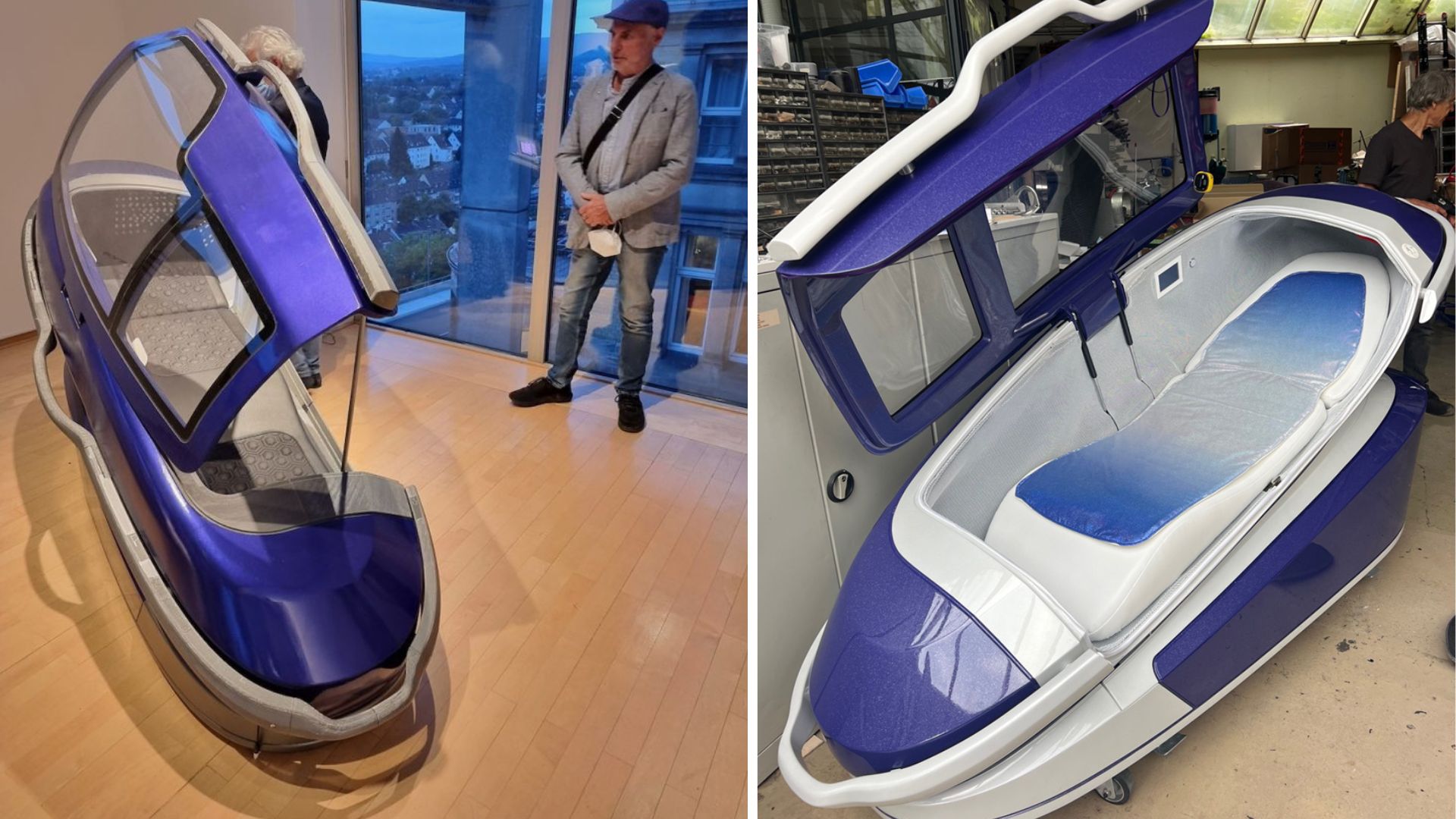In a move that has sparked intense debate and ethical scrutiny, a Swiss organization specializing in assisted dying has announced that a portable suicide pod could “soon” be utilized within the country.
This innovative yet controversial device, known as the Sarco capsule, is designed to facilitate a painless and self-administered death without the need for direct medical supervision.
The device, first unveiled in 2019, operates by replacing the oxygen within the pod with nitrogen, resulting in death through hypoxia, a condition of dangerously low oxygen levels in body tissues.
The organization behind this initiative, “The Last Resort,” has confidently asserted that no legal barriers exist to the use of the Sarco capsule in the country.
The nation’s legal framework generally permits assisted suicide as long as the individual actively performs the final act leading to death.
While the organization has not disclosed details about the first user or the exact timing and location of the first use to avoid media attention, it has been confirmed that the process will take place in a private, natural setting on private property before the year’s end.
Suicide pod development
The impetus for the Sarco capsule came from the plight of Tony Nicklinson, a UK resident who suffered from locked-in syndrome.
In 2012, Tony’s legal team approached Dr Philip Nitschke, who is also known for his invention of “The Deliverance Machine,” currently on display at the British Science Museum. Subsequently, Dr Nitschke developed the suicide capsule.
Notably, Dr Nitschke himself experienced the capsule’s operation firsthand in May 2024, donning oxygen-fed nasal prongs and activating the nitrogen flow from within.
He reported the sensation of the gas entering the capsule as barely noticeable and envisions the device providing peace of mind to users, perhaps enhanced by a serene view from the capsule’s window.
Significantly, rigorous testing of the capsule was recently completed in Rotterdam, Netherlands, ensuring the device consistently and reliably reduces oxygen levels to induce a peaceful death within approximately 60 seconds.
Demand and working of Sarco
Florian Willet, CEO of The Last Resort, revealed at a press conference that the interest in the Sarco capsule is already high, with individuals actively inquiring about its use.
He anticipates its deployment in the near future, characterizing the process as a tranquil transition to “eternal sleep.”
The Sarco operates by creating a low-oxygen, low-carbon dioxide environment through the use of nitrogen produced in its base. The nitrogen flow is activated by a button inside the capsule, ensuring no one external can initiate the process.
However, before using the Sarco capsule, individuals are mandated to undergo a psychiatric evaluation to ensure they possess the mental capacity to make such a decision.
This step seems crucial considering the fact that individuals will not be able to change their mind at the very last minute.
“Once you press that button, there’s no way of going back,” says Dr Nitschke.
Legal and ethical considerations
Fiona Stewart, a lawyer and member of The Last Resort’s advisory board, clarified that the minimum age for using the capsule is 50, though exceptions may be considered for seriously ill individuals over 18.
She emphasized that the Sarco is not intended for capital punishment and seeks to “de-medicalize” assisted suicide by eliminating the need for a doctor’s presence.
The financial aspect of using the Sarco is relatively minor, with users only incurring a cost of approximately $20 (18 Swiss francs) for the nitrogen required for the process.
However, the potential impact of this technology on society and the questions it raises about the role of technology in end-of-life decisions are far more complex and far-reaching.
While the Sarco capsule has garnered interest from some individuals seeking control over their end-of-life choices, it has ignited a broader conversation about the ethical dimensions of assisted dying.
ABOUT THE EDITOR
Aman Tripathi An active and versatile journalist and news editor. He has covered regular and breaking news for several leading publications and news media, including The Hindu, Economic Times, Tomorrow Makers, and many more. Aman holds expertise in politics, travel, and tech news, especially in AI, advanced algorithms, and blockchain, with a strong curiosity about all things that fall under science and tech.
